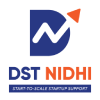
Online betting has grown into a global industry that combines entertainment, finance, and technology. For those just starting, understanding the basic steps to place a bet online and how to log into platforms safely is essential; a common starting point for many users is a straightforward portal such as online betting 1xbet singapore login which exemplifies typical account access flows. Beyond access, successful participation in online betting requires knowledge of odds, market types, bankroll discipline, and an appreciation of the legal and ethical frameworks governing wagering in different jurisdictions.
The landscape of online betting is diverse. Sportsbooks, exchange betting, esports, virtual sports, and casino-style betting each provide distinct experiences and require different approaches. Sportsbooks offer fixed-odds markets for events like football, basketball, tennis, and horse racing. Betting exchanges allow bettors to back or lay outcomes, effectively acting as the bookmaker for other users. Esports betting mirrors traditional sports but with titles like League of Legends, Counter-Strike, and Dota 2 attracting specialized markets. Virtual sports simulate events with fast resolution times, and online casino sections include slots, table games, and live dealer options.
Understanding odds is fundamental. Decimal, fractional, and moneyline formats express the same probability information differently. Decimal odds are popular for their simplicity—multiplying your stake by the decimal gives potential returns. Fractional odds, traditional in the UK, show profit relative to stake. American moneyline odds indicate how much you must wager to win or how much you win on a given stake depending on whether the number is negative or positive. More important than format is interpreting implied probability and comparing it to your own assessment of an event’s likelihood. Value betting—finding situations where the bookmaker’s implied probability underestimates the true chance of an outcome—is a core long-term strategy.
Bankroll management separates recreational bettors from those aiming for sustainable results. Start by setting a dedicated betting budget separate from essential expenses. Decide on a stake size based on a percentage of your bankroll—commonly between 1% and 5%—to avoid large volatility. Adjust stakes downward when in a losing streak and consider smaller bet sizes for more speculative markets. Keeping records of wagers, stakes, odds, and outcomes helps identify strengths, weaknesses, and whether certain markets or strategies are profitable over time.

Betting strategies vary by market and temperament. Flat betting—placing the same stake on every wager—is simple and reduces variance in stake size. Proportional betting adjusts stake size based on the current bankroll, maintaining consistent risk relative to capital. The Kelly criterion is a mathematical approach to maximize growth by staking a fraction of the bankroll proportional to perceived edge, but it requires accurate probability estimates and tolerates substantial variance. Many bettors combine statistical models, form analysis, and market observation to identify profitable opportunities, while also avoiding overconfidence in short-term results.
Live betting, also called in-play betting, offers dynamic markets that change as events unfold. These markets demand rapid decision-making and a clear understanding of momentum, game state, and how odds react to events. Live bettors look for discrepancies between real-time developments and market adjustments. However, live markets are more volatile and often include shorter windows for analysis, so disciplined stake sizing and quick but rational judgment are essential to avoid emotional decisions that lead to losses.
Choosing a bookmaker is a key decision. Compare odds, market depth, user interface, mobile experience, promotional offers, and customer service. Licensing and regulation are vital—prefer operators licensed by reputable authorities and regulated within your jurisdiction to ensure recourse and fairness. Payment options and withdrawal speed matter practically; local-friendly deposit methods, low fees, and transparent identity verification processes improve the user experience. Reading terms and conditions of promotions and welcome bonuses helps avoid unpleasant surprises related to wagering requirements and withdrawal limits.
Technology plays an increasingly central role. Modern betting platforms use real-time data feeds, robust mobile apps, live streaming, and cash-out options to engage users. Data-driven bettors often build models using historical performance, expected goals (xG) metrics, player-level analytics, and situational variables like weather or venue. Automation through bet placement APIs or alert systems can help execute strategies consistently, but they must be used responsibly and in compliance with a bookmaker’s terms of service.
Security and privacy cannot be overstated. Use strong, unique passwords and enable two-factor authentication where available. Beware of phishing attempts and only log into accounts via official sites or apps. Confirm that a site uses secure HTTPS connections and reputable payment processors. Regularly review account activity for unauthorized transactions, and limit the personal information you share publicly to reduce the risk of identity theft or targeted scams.

Responsible gambling practices protect players and their communities. Set deposit limits, loss limits, and betting timeframes. Self-exclusion and cool-off tools are available on most reputable platforms for users who feel their behavior is becoming problematic. Recognize signs of addiction—chasing losses, betting despite negative consequences, or increasing isolation—and seek help if needed. Many jurisdictions provide resources, helplines, and counseling services for gambling-related issues.
Legal and regulatory considerations vary widely by country and region. Some markets allow broad commercial betting operations, while others restrict or prohibit online wagering. Tax obligations also differ: in some places winnings are tax-free for individuals, while in others they may be considered taxable income. Before wagering, familiarize yourself with local laws to ensure that your activities are lawful and to understand any reporting responsibilities you may have.
Promotions and loyalty programs can add value if used judiciously. Welcome bonuses, free bets, and enhanced odds provide short-term value but often come with wagering requirements. Evaluate whether the terms make the promotion worthwhile—consider the contribution of each market type to wagering requirements and the feasibility of clearing the bonus without excessive risk. Loyalty programs and VIP schemes reward frequent play with cashback, free bets, or enhanced customer service, but they can also encourage increased wagering, so apply them within the limits of a pre-defined bankroll plan.
Finally, cultivate a mindset suited to long-term participation rather than quick wins. Treat online betting as entertainment with a cost structure, or as a skill-based pursuit that requires study, discipline, and continuous improvement. Analyze your results, learn from mistakes, and adapt strategies rather than chasing immediate redemption after losses. With informed decisions, solid risk management, and responsible play, online betting can be a controlled and engaging activity rather than a source of harm.
In summary, the world of online betting blends opportunity and risk. Grasp the fundamentals of odds and markets, manage your bankroll carefully, choose trustworthy operators, use technology to inform but not inflate confidence, and prioritize security and responsible habits. Whether you are a casual bettor or aiming for professional results, a considered approach will improve your experience and help protect your finances and wellbeing.









